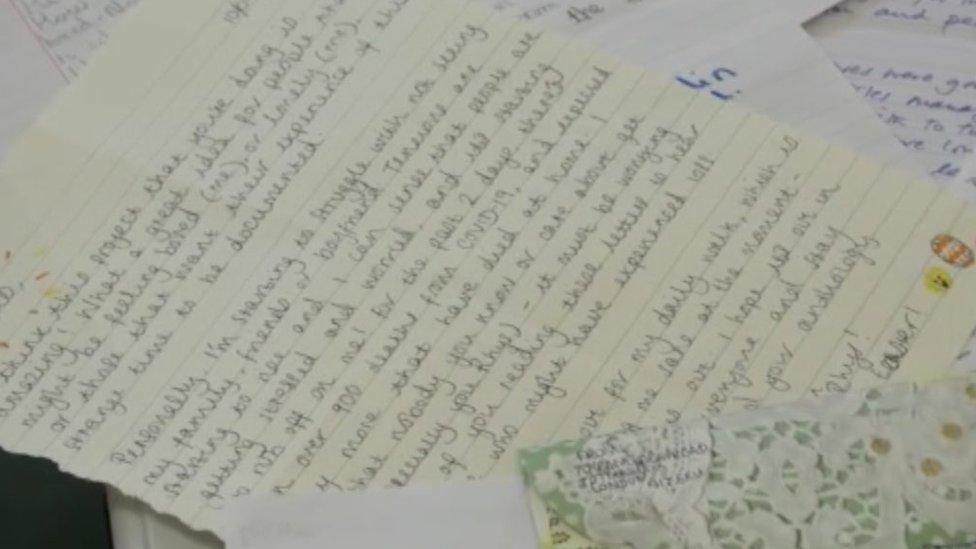Coronavirus: NHS faces 'massive' challenge helping patients recover
- Published
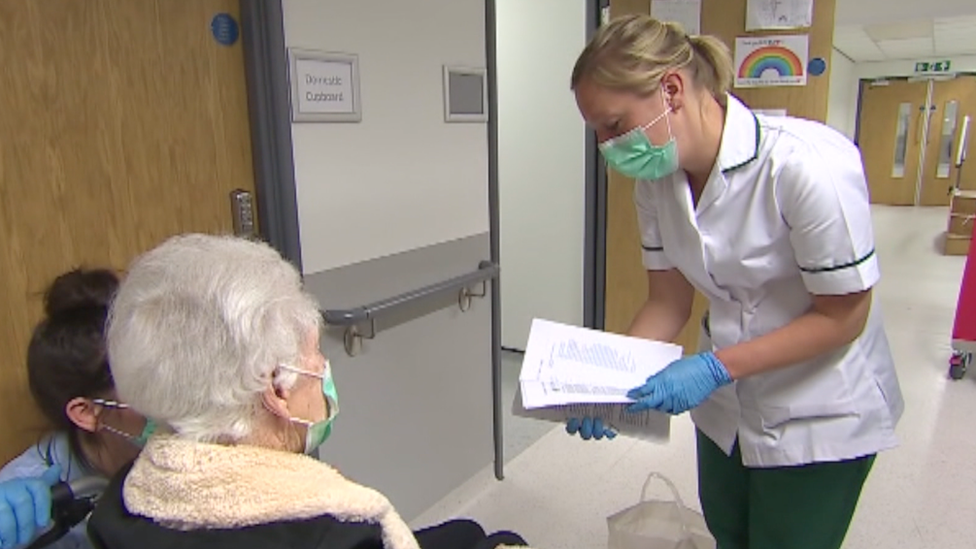
Giving patients support after the pandemic will be a huge challenge, experts say
Providing ongoing support to patients recovering from Covid-19 will be a "massive" challenge for the NHS, say specialists.
Occupational therapy and physiotherapy organisations told BBC Wales a national strategy for rehab would be required.
They claim provision is "patchy" and without help people's lives will be harmed.
The Welsh Government said it had announced an extra £10m to help people recovering from coronavirus.
Making sure effective support is in place will be key, according to Dai Davies, from the Royal College of Occupational Therapists in Wales.
He said coronavirus patients were experiencing extreme weakness and fatigue, breathlessness, neurological problems such as poor concentration as well as anxiety, depression and loss of confidence in their bodies.
The effects could last for months, he warned, with occupational therapists (OTs) involved "from the start".
Mr Davies said: "It's hard when you've gone from a fully functioning member of society to struggling to get dressed, so that's another major issue our OTs are working on."
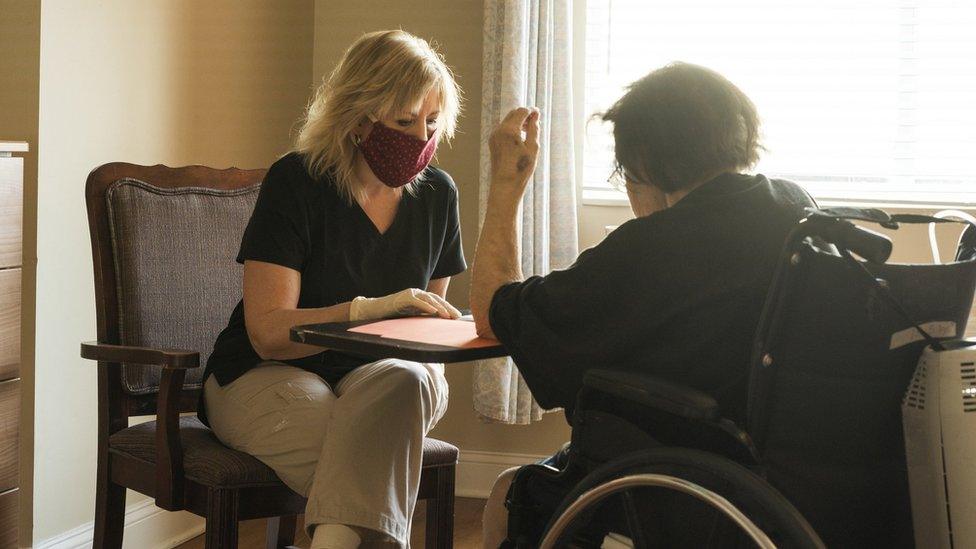
Therapy organisations say a Wales-wide strategy is required to help coronavirus patients recover
As well as helping hospital patients he predicted staff would be attending to many of the 80,000 vulnerable people "shielding" at home in Wales.
"We really need the services to be there to meet the needs of those people," Mr Davies said.
"Rehab is going to be massive for us in the future."
He said he wanted all UK governments to ensure rehab was central to their health and social care models, with "multidisciplinary teams" of therapists in the community.
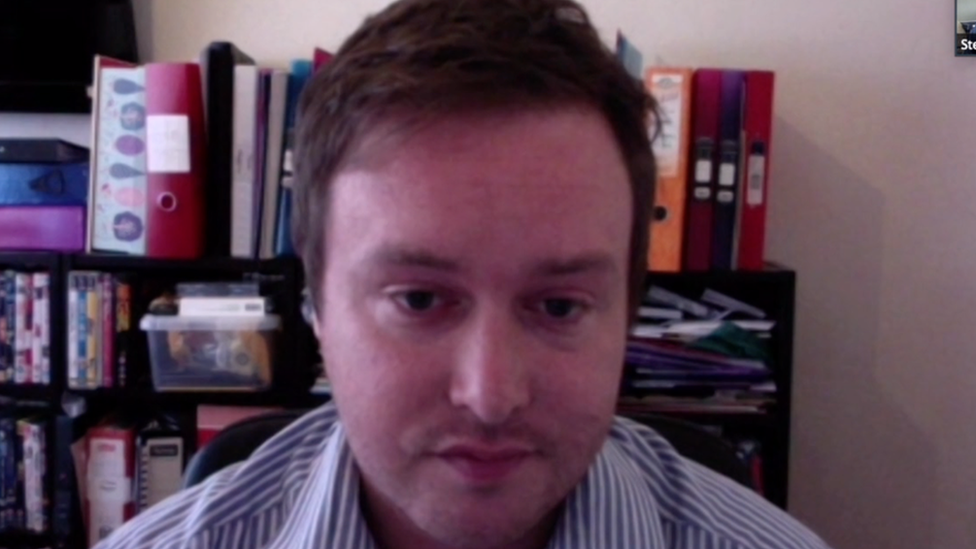
Calum Higgins of the Chartered Society of Physiotherapy said a strategy would save time and money
Calum Higgins, of the Chartered Society of Physiotherapy, said the crisis should lead to an NHS culture change so rehabilitation was considered a patient's right.
"This will save both money and time for the health service," Mr Higgins said.
"Experience shows that if you don't offer appropriate rehab what happens is that people eventually end up coming back in a worse condition."
A Welsh Government spokesman said it anticipated "increasing demand" for rehab from people recovering from coronavirus.
"The health minister has announced an extra £10m to support people recovering from coronavirus, including enhanced home care packages," a spokesman said.
Staff 'couldn't do enough'
Edna Unsworth says she couldn't wait to look out of the window at the blue sky and get better.
Edna Unsworth, 88, was discharged from hospital after recovering from Covid-19.
She said staff at Glan Clwyd Hospital in Denbighshire "couldn't do enough" for her.
Ms Unsworth, from Rhyl, was handed a self-isolation pack of food, toiletries and activities to help with mental health and daily routines.
"When they do go home from hospital it's going to be quite a worrying time for them and their families and we just felt that a bit of support with the packs and tips would give them that confidence and reassurance," explained Alana MacPherson, the occupational therapist behind the idea.
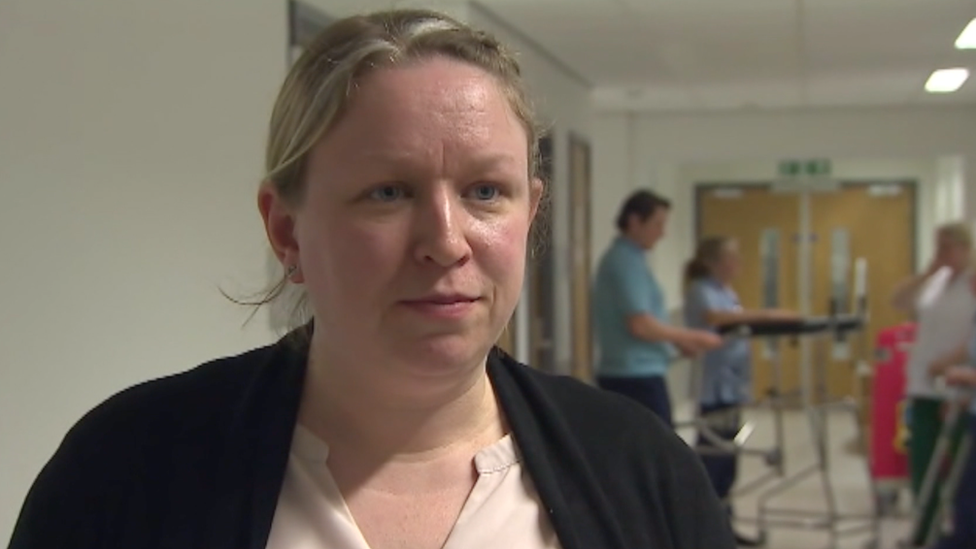
Jamy Ashton said there would be a "huge role" for staff responding to coronavirus
Jamy Ashton, an occupational therapy chief at the Betsi Cadwaladr health board, said there would be a "huge role" for staff responding to coronavirus.
"To come in with a new diagnosis, a scary diagnosis and to have your friends and family not to be able to be in with you, makes it all the more challenging," she said.
"We've done a lot of support work, a lot of counselling and working closely with patients on their goals with them to get them back home again."
Independence
The occupational therapist in charge of Ms Unsworth's rehabilitation in hospital, Lindsey Macintyre, has been redeployed from working in the community with young people.
She said: "Even when they lift the lockdown there'll be all the people who've been self-isolating, all the elderly people, who've become deconditioned at home, patients who would usually have come into hospital but haven't, and we'll have to try to rehabilitate them back to their usual independence."

A SIMPLE GUIDE: How do I protect myself?
AVOIDING CONTACT: The rules on self-isolation and exercise
HOPE AND LOSS: Your coronavirus stories

Back home, Ms Unsworth will be visited twice a day by technical instructor Beth Jones.
"It's pretty unusual for the acute team to go out of hospital and do this but I'm sure everyone will agree we're more than happy to do it," she said.
Ms Unsworth said she was happy to be home and couldn't wait to "look out at the blue sky and the sun and get better."
- Published29 April 2020
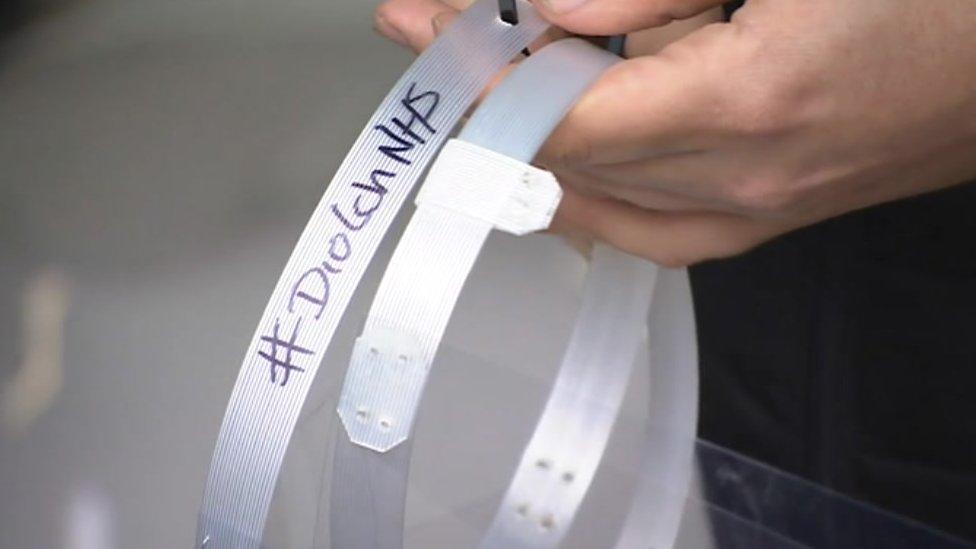
- Published29 April 2020

- Published29 April 2020
